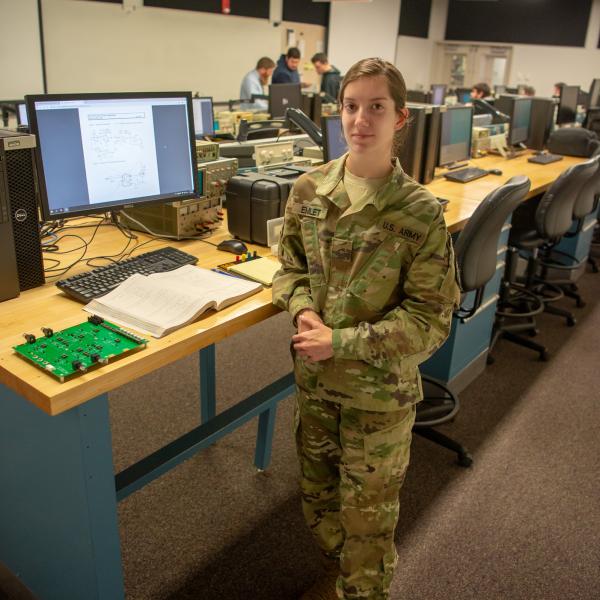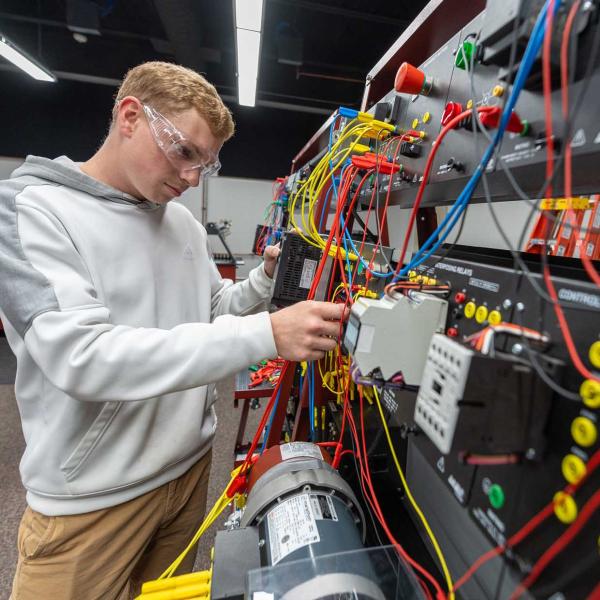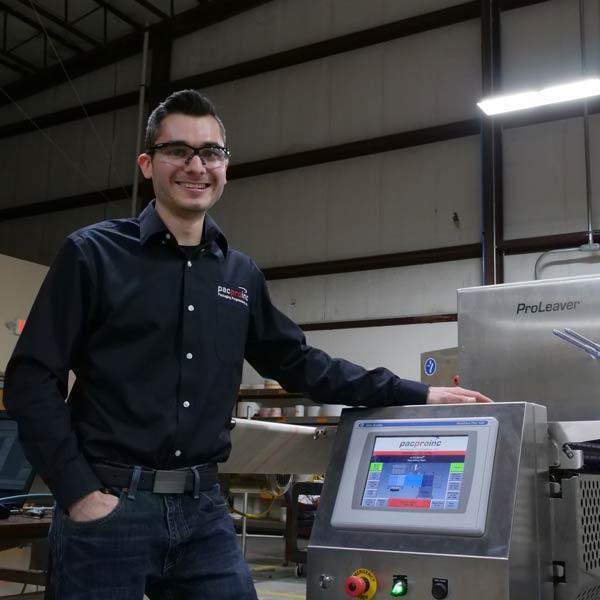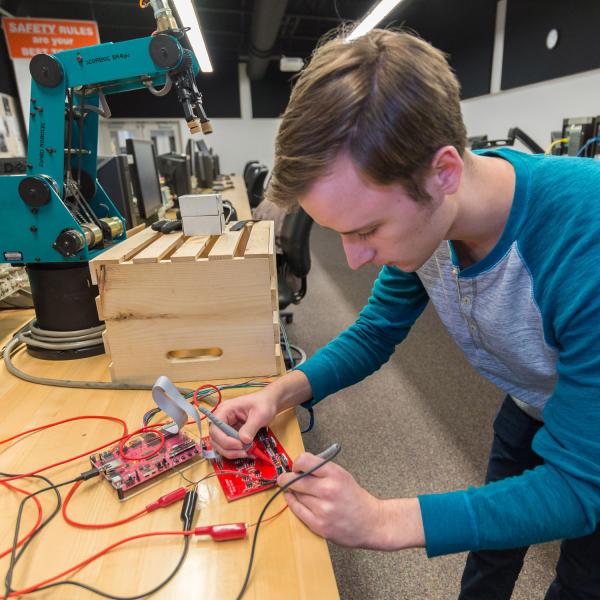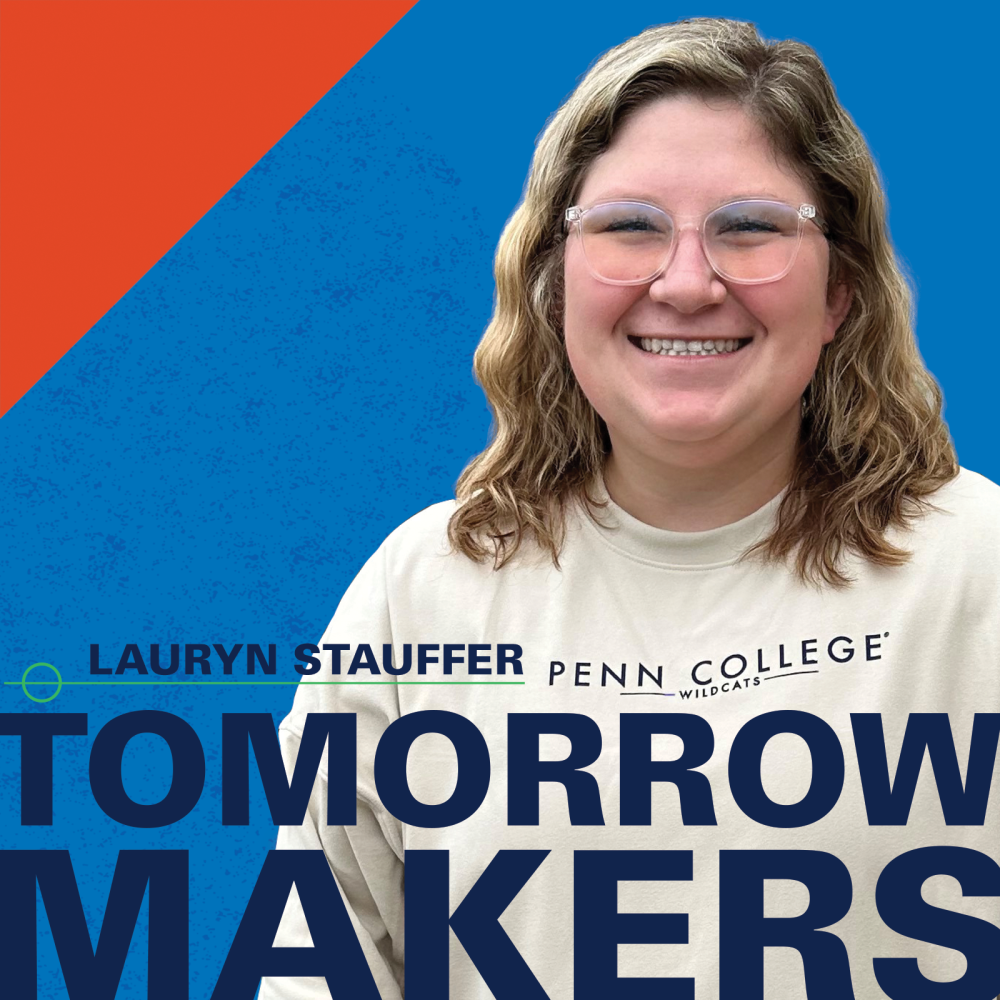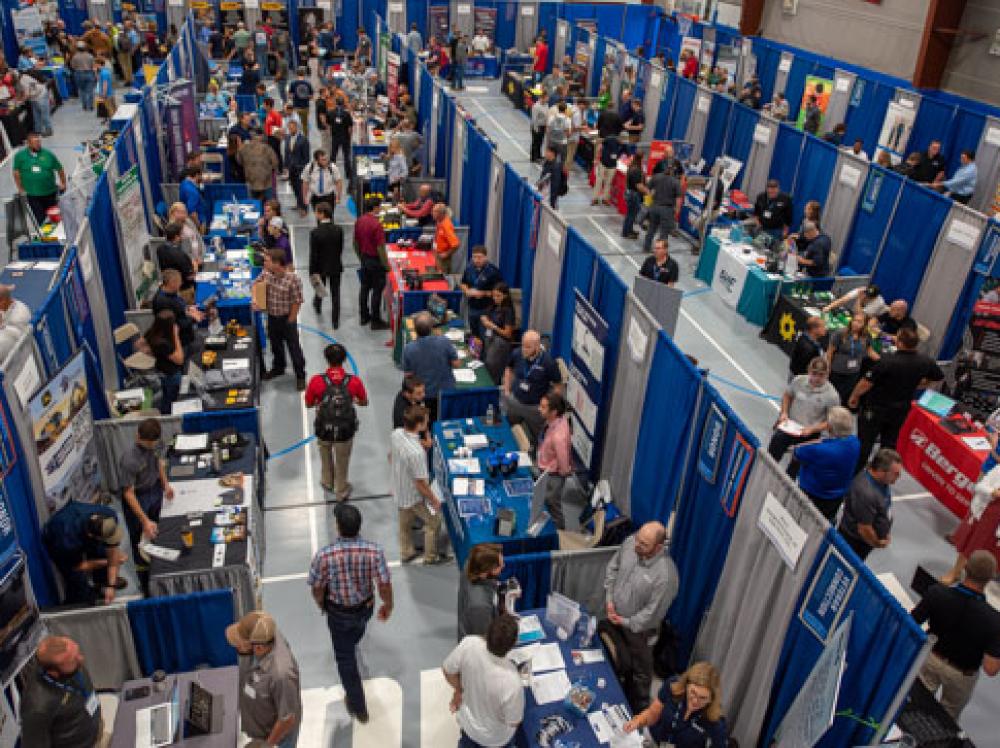Electronics & Computer Engineering Technology: Electronics & Computer Engineering Emphasis
About this program
Tackle advanced math and science. Explore electronic circuits and devices, digital/microprocessor systems, computers, networks, and programming and software tools. Whether it’s taking the lead on a project or collaborating with a team, this technology-driven program arms students with a host of practical skills to pursue diverse careers in electronics and computer engineering.
Extensive Hands-On Experience
17
Average Class Size
Seamless Associate-to-Bachelor Degree Pathway
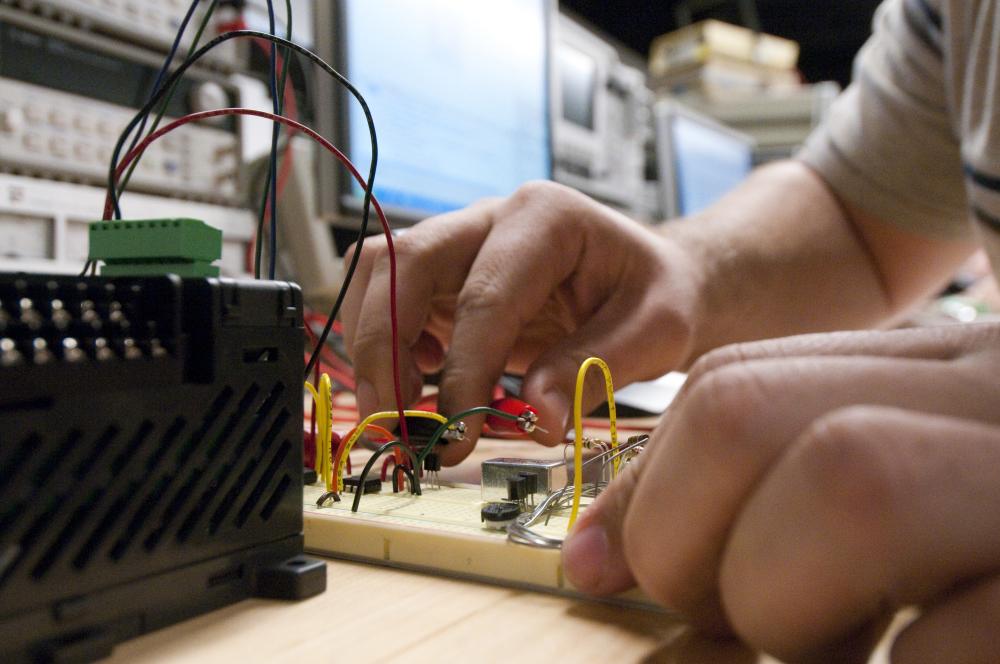
Careers
- Process engineering technician
- Test engineering technician
- Controls engineering technician
Courses
At Penn College, we believe your educational experience should go beyond specialized skills. Real-world ready means taking a broader approach that builds communication skills, inspires collaboration, and encourages exploration of arts, history, and science.
Specialization requires in-depth knowledge and high-level proficiency. Students learn and apply major-specific concepts, skills, and methods.
- Introduction to Digital Electronics (EET114)
- Digital Circuits Applications (EET115)
- Electronic Circuits & Devices I (EET116)
- Engineering, Technology & Society (EET124)
- Introduction to Microprocessors (EET154)
- Microprocessor Applications I (EET155)
- Electronic Circuits & Devices II (EET156)
- Software Tools for the Engineering Technologist (EET158)
- Network Installation & Maintenance (EET204)
- Network Maintenance Laboratory (EET205)
- Linear Integrated Circuits (EET206)
- Linear Circuits Applications (EET207)
- Systems Troubleshooting Applications (EET209)
- Microprocessor Interfacing (EET202)
- Microprocessor Applications II (EET203)
Perspectives are points of view, offering a variety of ways of understanding, interacting, and influencing the world. Students identify, explain, and utilize the approaches used by academics and professionals to study, analyze, or understand problems, and offer solutions.
Foundations are the practical, intellectual, and social skills: communication, collaboration, critical and ethical thinking, quantitative thinking, and technological literacy that are crucial to every student at every stage of education and at every stage of life.
- Introduction to Digital Electronics (EET114)
- Digital Circuits Applications (EET115)
- Electronic Circuits & Devices I (EET116)
- Engineering, Technology & Society (EET124)
- Pre-Calculus (MTH191)
- Introduction to Microprocessors (EET154)
- Microprocessor Applications I (EET155)
- Electronic Circuits & Devices II (EET156)
- Software Tools for the Engineering Technologist (EET158)
- English Composition I (ENL111)
- Calculus I (MTH240)
- Network Installation & Maintenance (EET204)
- Network Maintenance Laboratory (EET205)
- Linear Integrated Circuits (EET206)
- Linear Circuits Applications (EET207)
- Systems Troubleshooting Applications (EET209)
- Calculus II (MTH242)
- Microprocessor Interfacing (EET202)
- Microprocessor Applications II (EET203)
- English Composition II (ENL121) or
- Technical & Professional Communication (ENL201)
Next steps...
You're on your way to becoming a tomorrow maker.

Facilities
Electronics Lab
Get hands-on experience in specialized labs using industry-standard equipment, BYNQ boards, and other tools just like you'll see in the real world.
Maker Profiles
Tour Schedule
Seeing is believing.
Think Penn College might be a good fit for you? Make plans to visit and discover what hands-on learning is all about.
Internship
Your knowledge in practice
Internships are key for career preparation. Apply your knowledge to the workplace and learn about the industry first-hand.

Related Programs
Follow your passion
Student Life
Lead and put your skills to the test

IEEE Student Branch at Penn College
Dedicated to advancing technological innovation and excellence for the benefit of humanity, the Penn College IEEE Student Branch meets regularly to work on professional soft skills, projects, and leadership.

SkillsUSA
Participation in SkillsUSA gives students a chance to compete in more than 80 national competitions.

Student Organizations at Penn College
Your college experience is about more than the classroom. Join one of 65+ clubs and organizations, or create your own.
Penn College News
Wednesday, February 5, 2025
TC Energy Corp. awards grant to Penn College
Tuesday, October 22, 2024
Passing the torch on 'Her Perfect Pathway'
Friday, May 24, 2024
Spring flashback: Northern Ireland visitors are a highlight
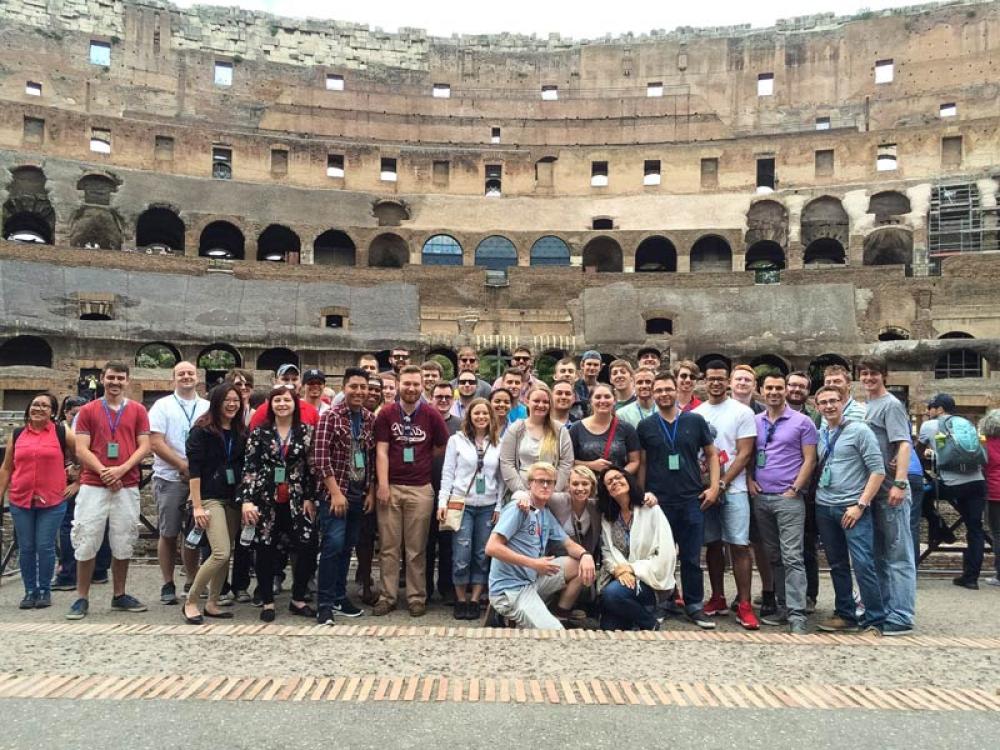
Study Abroad
Gain global experience
See the world via Williamsport. Take your education abroad and get hands-on experience learning about your industry on a global scale.
More Information
This major is subject to the transfer standards established by the College (see http://www.pct.edu/catalog/TransferringCredits). Exceptions must be approved by the school dean.
Students are advised not to purchase new tools before meeting with faculty on the first day of classes.
It is suggested that students have at least the recommended tools. Instructors will help identify what tools are needed during the first day of class. Free lockers are located in the laboratory area.
View the Electronics & Computer Engineering Technology Tools .
Uniforms and tools are available for purchase through The College Store .
Electronics & Computer Engineering Technology Program Review Executive Summary
Cadence University Program Member
Cadence products presently used at Penn College. Read More
Alternative Credit refers to academic credits earned through means other than traditional college course completion, including: credit by exam, articulation, proof of competency gained in high school, work/life experience, and advanced placement.
Visit the Alternative Credit Options page for requirements and procedures and for information on credit through Advanced Placement.

